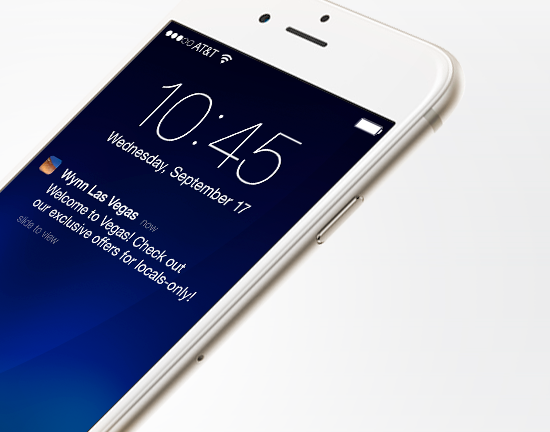The following is an excerpt from chapter three of Intellectsoft’s upcoming, comprehensive guide: “User Acquisition Explained: A Cost-Effective Strategy for Finding the Audience Your App Deserves”.
The effective use of reviews and referrals can be a remarkably cost-effective way to draw in new users for your app.
MAKE REFERRALS EASY
When people say that an app “went viral,” what they really mean is that an app “experienced rapid user growth as a result of word-of-mouth marketing.”
Two-word explanations are better than 12-word explanations, so it’s understandable why the first phrase took off. But it’s important to acknowledge what the second phrase is saying:
Virality is not a random, mysterious occurrence. In reality, it’s as quantifiable as any other marketing attribute.
The most obvious viral metric to start with is referrals. According to Facebook, referrals from friends or family are responsible for 36% of all app discoveries. As a developer, there are several reliable ways to get your users in a giving mood:
Social Sign-In. App activity can be shared in social media feeds, raising your brand awareness within your user’s networks.
Social Sharing Icons. Less intrusive than social sign-in, but also a great way for users to selectively share their app accomplishments and activities with friends and family.
Direct Invites. Messages received via text or email from a close contact tend to have higher authority and are often more convincing.
Incentivized Referrals. Discount codes or similar freebies provide users with a clear and immediate value in exchange for their app advocacy.
By baking these mechanisms into the fabric of app functionality you can effectively recruit an army of marketers with little to no monetary investment. Just make sure users actually have a chance to explore and enjoy your app first. Otherwise, greedy referral requests could send users running in the opposite direction.
DON’T BE SHY ABOUT REVIEWS
Ratings are a primary variable in app store ranking algorithms, and they also happen to be where most users first look when scanning their search results. This can be great news for underdog developers.
No matter how much name recognition or financial resources your competition has working in their favor, they still need to put out a quality product. If they don’t, they’ll risk drowning in a flood of one- and two-star reviews.
The sentiment of app user reviews isn’t the only factor here, however. In fact, growing evidence suggests that the volume of reviews may ultimately be more important. But regardless of whether ranking algorithms can ever be fully understood, a healthy number of positive reviews can only be good for business.
The trouble is, the average app user has little interest in submitting any app reviews. In fact, approximately two-thirds of apps sitting in the iTunes Store have failed to attract a single one. So consider it your responsibility to start the conversation.
There are plenty of options out there for how to style your message, but how you prompt users is far more important. A few of the golden rules for in-app pop-ups include:
DO let users explore the app before requesting any favors (> 5 sessions)
DON’T interrupt users in the middle of an activity
DO capitalize on satisfying moments like task completion
DON’T talk like a robot or badger like a spammer
DO provide clear and simple options for users to select
Among a certain portion of mobile app users, however, anything resembling a traditional rating request will automatically be dismissed. As a result, more publishers are prioritizing user feedback loops instead.
Media app Circa News, for example, seeks reviews by initially asking users if they are enjoying their experience. If the user replies positively, only then are they asked to rate the app. If the user replies negatively, they are asked whether they would be willing to submit feedback to Circa instead.
This is brilliant in two ways. First, the decision flow makes it easy for happy users to write app store reviews and harder for disappointed users to do the same. Second, it gives Circa an opportunity to rescue bad experiences while simultaneously gaining perspective that will help prevent future disappointments.
This is just a taste of our upcoming user acquisition ebook for anyone diving into app development. Whether you’re with a cash-strapped startup or a well-funded venture exploring the most strategic investment choices for user acquisition, make sure to follow Intellectsoft for information on how to get your free copy of User Acquisition Explained


